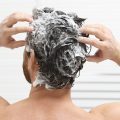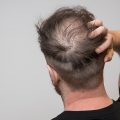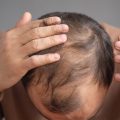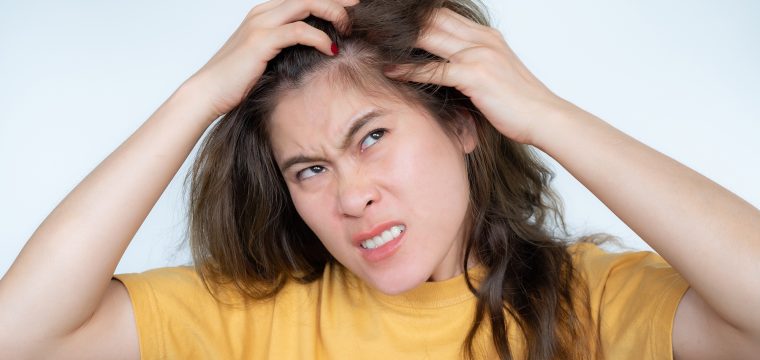
Common Triggers and Remedies of an Itchy Scalp
Last updated on July 8, 2025
An itchy scalp can be an annoying and uncomfortable experience. Whether it’s a mild tingle or a persistent irritation, understanding the underlying causes is key to addressing the issue effectively. As a leading Melbourne hair loss clinic, our doctors explore the most common triggers of an itchy scalp, along with practical remedies to soothe the skin, restore comfort, and prevent hair loss.
Common Triggers of an Itchy Scalp
First, let’s start with the most common reasons why your scalp may start feeling uncomfortable.
1. Dry Scalp
Dry scalp is a widespread cause of itchiness. It occurs when the scalp’s natural oils are stripped away or diminished, leaving it parched and prone to flaking. This is often due to:
- Over-washing or using harsh shampoos
- Exposure to cold, dry air during winter
- Dehydration or lack of moisture
2. Dandruff
Dandruff, characterised by white flakes and itchiness, is typically caused by an overgrowth of a yeast-like fungus called Malassezia. This microorganism feeds on scalp oils, leading to irritation and flaking.
3. Scalp Psoriasis
Scalp psoriasis is a chronic skin condition marked by red, scaly patches that can be intensely itchy. It results from an overactive immune system, causing skin cells to build up rapidly.
4. Contact Dermatitis
Using hair products containing harsh chemicals or allergens can trigger contact dermatitis. Shampoos, conditioners, hair dyes, and styling products can cause an allergic reaction or irritate the scalp, resulting in redness, itching, and discomfort.
5. Head Lice
Though more common in children, head lice can also affect adults. These tiny parasites feed on blood from the scalp, causing intense itching and irritation.
6. Seborrhoeic Dermatitis
Seborrhoeic dermatitis is a more severe form of dandruff that involves inflammation. It appears as red, greasy patches with yellowish scales, commonly found around the hairline, eyebrows, and behind the ears.
7. Fungal Infections
Fungal infections, such as ringworm (tinea capitis), can affect the scalp, causing circular, itchy patches that may become scaly or inflamed.
8. Stress and Hormonal Changes
Stress and hormonal fluctuations can also play a role in scalp health. Stress can trigger or exacerbate conditions like dandruff or psoriasis, while hormonal changes can impact sebum production and lead to dryness or excess oiliness.
Practical Remedies for an Itchy Scalp
Now, let’s look at home remedies and professional solutions to help stop your scalp from itching.
1. Choose a Gentle Shampoo
If your scalp is dry or sensitive, choose a gentle, sulphate-free shampoo. Sulphates can strip natural oils, making dryness and itching worse. The best shampoo for an itching scalp will contain hydrating ingredients like aloe vera, coconut oil, or hyaluronic acid.
2. Moisturise the Scalp
Applying natural oils, such as coconut oil, olive oil, or jojoba oil, can help restore moisture and relieve itching. Gently massage the oil into the scalp and leave it on for at least 30 minutes before rinsing with a mild shampoo.
3. Control Dandruff with Targeted Products
Anti-dandruff shampoos containing zinc pyrithione, selenium sulphide, or ketoconazole can help combat Malassezia and reduce flaking. Use these products as directed, typically 2–3 times a week.
4. Rinse with Apple Cider Vinegar
Apple cider vinegar has antimicrobial properties and can help balance the scalp’s pH. Dilute it with water in a 1:1 ratio, apply it to the scalp, and leave it on for a few minutes before rinsing thoroughly.
5. Avoid Harsh Hair Products
Stay away from hair products that contain alcohol, synthetic fragrances, and harsh chemicals. These can further irritate the scalp and worsen the itching.
6. Brush Gently and Regularly
Brushing your hair gently with a soft-bristled brush can help distribute natural oils and remove dead skin cells. However, avoid excessive brushing, as it can lead to further irritation.
7. Manage Stress
Since stress can aggravate skin conditions, practising relaxation techniques such as yoga, meditation, or deep breathing exercises can help maintain a healthy scalp.
8. Maintain a Healthy Diet
A balanced diet rich in vitamins and minerals supports skin and scalp health. Include foods high in omega-3 fatty acids, zinc, and vitamin E to help reduce inflammation and dryness.
9. Use Warm, Not Hot, Water
Hot water can strip the scalp’s natural oils, leading to dryness and irritation. Instead, wash your hair with lukewarm water to protect the scalp barrier.
10. Consult a Professional
If home remedies and gentle care aren’t relieving the itching, it’s best to see a medical professional. Persistent itchiness, redness, or scaly patches could indicate an underlying condition that requires specific treatment or a condition that can lead to hair fall and even permanent hair loss.
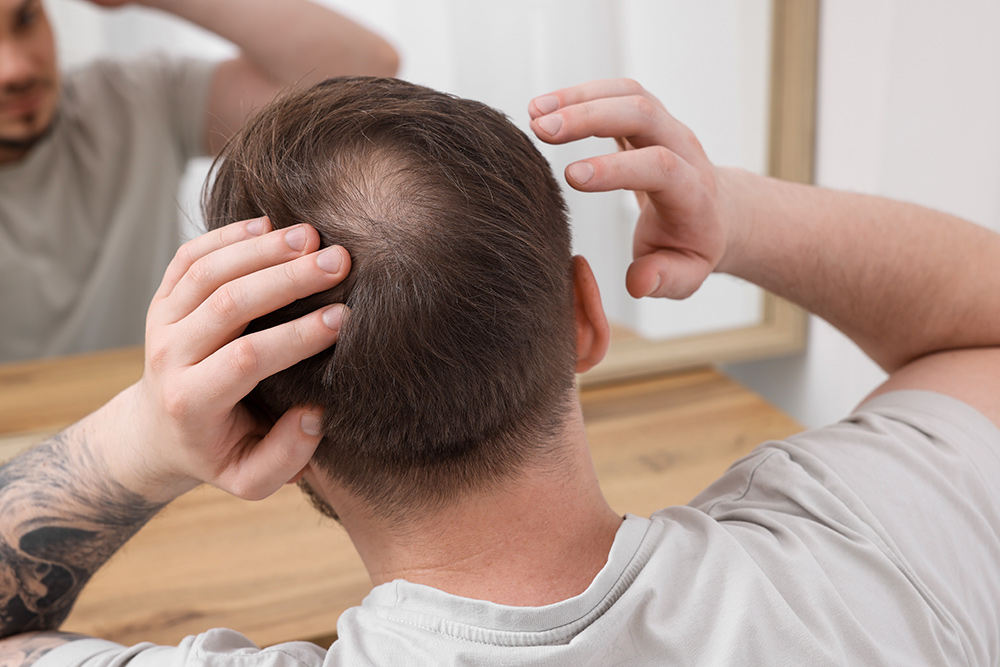
Persistent scratching from an itchy scalp can harm hair follicles, increasing the risk of hair thinning and patchy hair loss. At Hair Transplants Melbourne, we offer targeted solutions to soothe your scalp and promote thick, healthy hair growth.
When to Seek Professional Help
- Itching persists for several weeks despite home care
- Scalp has painful sores, swelling, or pus-filled bumps
- Large patches of hair loss accompany the itchiness
- The itching significantly impacts your sleep or daily life
A doctor can provide a thorough diagnosis and recommend tailored hair growth treatments to restore comfort and protect hair health.
Hair Growth & Scalp Health Solutions at Hair Transplants Melbourne
At Hair Transplants Melbourne, we understand that a healthy scalp is essential for healthy hair growth. Our team offers a range of advanced solutions to address hair and scalp concerns, including:
- FUE and FUT hair transplants
- Liquid Hair Therapy
- Scalp micropigmentation
- Growth factor treatments
- Exosome treatments
- Regenera stem cell treatments
- Prescription medications
We know that every scalp and hair concern is unique, which is why our consultations are personalised to your needs. If you’re dealing with persistent scalp itchiness, thinning hair, or patchy hair loss, we’re here to help.
Book a consultation or get a free online quote from Hair Transplants Melbourne today to explore tailored solutions and hair loss treatments for your scalp and hair health.
FAQs
Can diet affect scalp health?
Yes, a balanced diet rich in vitamins, minerals, and omega-3 fatty acids supports scalp health. Nutrients like zinc, vitamin E, and biotin help reduce inflammation and dryness. At Hair Transplants Melbourne, we can advise you on dietary adjustments as part of a comprehensive hair health plan. For tailored guidance, book a consultation or get a free online quote to learn more about our hair loss solutions.
How can I treat a dry scalp at home?
For dry scalp relief, use a gentle, sulphate-free shampoo, apply natural oils like coconut or jojoba, and avoid hot water. Apple cider vinegar rinses can also balance scalp pH. If home remedies aren’t enough, our experienced team at Hair Transplants Melbourne can help with advanced treatments to address underlying causes. Book a consultation for advice or request a free online quote to learn more about our hair and scalp solutions.
Does stress make an itchy scalp worse?
Absolutely. Stress can trigger or worsen scalp issues like dandruff, psoriasis, and hair loss. Managing stress through exercise, relaxation, and mindfulness can help. Our Melbourne hair loss clinic takes a holistic approach to hair and scalp health, offering treatments and lifestyle guidance to address underlying causes. Book a consultation or get a free online quote to find the right solution for your needs.
How can I prevent an itchy scalp in winter?
To avoid winter itchiness, wash hair with lukewarm water, use a gentle shampoo, and apply hydrating oils. Avoid harsh treatments and cover your head when outdoors in cold weather. Hair Transplants Melbourne can help with expert advice and solutions if winter dryness leads to more persistent scalp concerns. Book a consultation or get a free online quote for personalised recommendations.
Can an itchy scalp lead to hair loss?
Chronic scratching can damage hair follicles, leading to thinning and hair loss. Underlying scalp conditions like psoriasis or fungal infections can also contribute. Hair Transplants Melbourne offers personalised treatments to soothe and nourish the scalp, and address hair loss, including advanced therapies like FUE and FUT hair transplants. Book a consultation to learn more, or get a free online quote for our comprehensive hair loss solutions.





